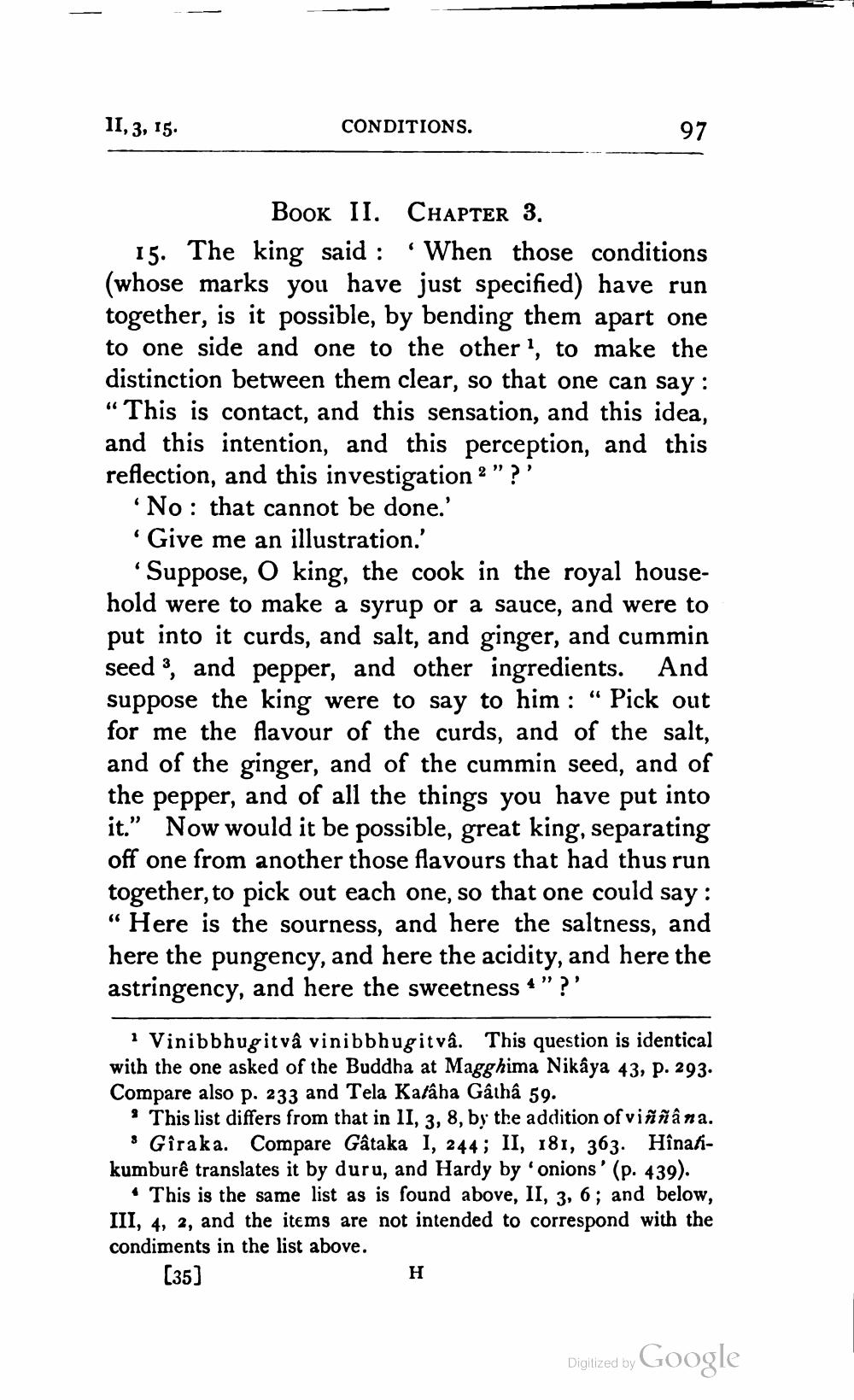________________
11, 3, 15.
CONDITIONS.
97
Book II. CHAPTER 3.
15. The king said: When those conditions (whose marks you have just specified) have run together, is it possible, by bending them apart one to one side and one to the other 1, to make the distinction between them clear, so that one can say: "This is contact, and this sensation, and this idea, and this intention, and this perception, and this reflection, and this investigation 2 "?"
'No that cannot be done.'
'Give me an illustration.'
'Suppose, O king, the cook in the royal household were to make a syrup or a sauce, and were to put into it curds, and salt, and ginger, and cummin seed, and pepper, and other ingredients. And suppose the king were to say to him: "Pick out for me the flavour of the curds, and of the salt, and of the ginger, and of the cummin seed, and of the pepper, and of all the things you have put into it." Now would it be possible, great king, separating off one from another those flavours that had thus run together, to pick out each one, so that one could say: "Here is the sourness, and here the saltness, and here the pungency, and here the acidity, and here the astringency, and here the sweetness + " ?'
1 Vinibbhugitvâ vinibbhugitvâ. This question is identical with the one asked of the Buddha at Magghima Nikâya 43, p. 293. Compare also p. 233 and Tela Kalâha Gâthâ 59.
This list differs from that in II, 3, 8, by the addition of viññâna. Giraka. Compare Gâtaka 1, 244; II, 181, 363. Hînatikumburê translates it by duru, and Hardy by 'onions' (p. 439).
This is the same list as is found above, II, 3, 6; and below, III, 4, 2, and the items are not intended to correspond with the condiments in the list above.
[35]
H
Digitized by Google




